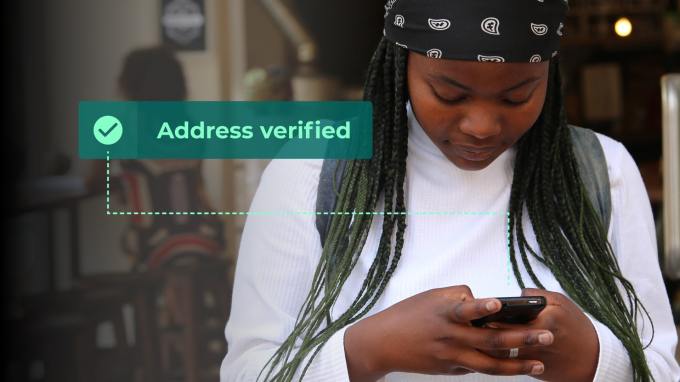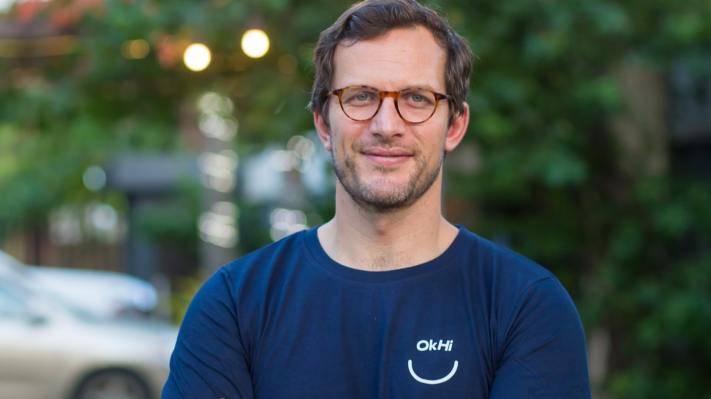Okhi, Nigerian smart address start-up secures $1.5M seed extension to scale its service across Nigeria

OkHi, a Nigerian smart addressing start-up that eliminates the in-person verification of customers’ addresses by banks, fintech companies, and other businesses has secured $1.5 million in seed extension to scale its service across Nigeria. The round brings its total seed raise to $3 million.
Chapel Hill Denham, Flutterwave’s founder and executives, EXFI; a syndicate of ex-Googlers were the investors that participated in the round. They now join existing investors such as Founders Factory Africa, Betatron, and Interswitch Group. Also, Bolaji Balogun, CEO of Chapel Hill Denham, will join OkHi’s board.
Navigating addresses in Africa is difficult, owing to the absence of effective design in most towns and inadequate addressing infrastructure. It is extremely difficult to open a bank account or use fintech tools. Customers revert to inefficient practices such as sending physical agents to the address, which is both time-consuming and expensive.
OkHi is using technology to address these issues in Nigeria. Its technology enables banks, fintech firms, and businesses to gather and verify client addresses using their cell phones.
Timbo Drayson had the concept for a smart solution to the continent’s address shift while working as a product manager at Google for seven years in London and the United States. He was a member of the Google Maps launch team across Europe, the Middle East, and Africa. But it wasn’t until he took a sabbatical and traveled around the continent’s east and west regions that he decided to tackle the problem in earnest, resulting in the birth of OkHi in 2014.

Timbo Drayson, CEO, and founder of OkHi
“The problem that I was experiencing firsthand, whether it was trying to get a delivery, then from Jumia, in its early days, or whether it’s just trying to register for a SIM card, everyone was asking for an address, and there’s no way for me to give an address. And I realized that this was a huge problem, not just for every Nigerian, but also for half the world,” the founder and CEO, Drayson said.
OkHi’s launchpad in Nigeria and the company’s first project is to construct for financial services. As previously stated, banks and fintech companies must verify their clients’ addresses to properly enroll them. Manual procedures, such as having an agent check the address offline, or inefficient digital alternatives, such as utilizing utility bills, are usually the only possibilities.
How OkHi Works
Consumers visit OkHi’s website and create addresses by dragging a pin onto a map that represents their street. OkHi not only gathers this address but also utilizes location data from the consumer’s phone to actively monitor how long the phone remains at the saved address. OkHi builds a profile over time, utilizing its “AI-powered verification engine” to identify whether or not the customer lives at that address.
OkHi’s solution interfaces with a mobile banking app or fintech app, allowing them to digitally gather and verify their clients’ precise addresses.
Consumers may utilize their addresses across OkHi-partnered financial institutions after creating and verifying them, including Interswitch’s Quickteller product and Stanbic IBTC. According to a press release from OkHi, a trial with the latter revealed that their address verification solution is 30% more accurate, 4x quicker, and 50% less expensive than the industry norm of sending a physical representative to a customer’s door.
According to Drayson, the start-up is in negotiations with 15 additional banks and fintech companies, with intentions to roll out with them in the coming months. To broaden its clients, he also stated that OkHi will give its address verification and collection services to businesses such as last-mile deliveries, e-commerce, food delivery, and emergency services.
OkHi bills its customers on a transaction-by-transaction basis. A firm is charged ₦500 (~$1) every time it correctly validates a customer’s address. OkHi claims to have a user base of “hundreds of thousands.”
OkHi’s, together with YouVerify and VerifyMe, is one of the most important participants in Nigeria’s identity and address verification market. OkHi’s solution is distinct, according to Drayson, since it focuses on people rather than locations.
“I think a straightforward way to try and understand the difference is that we focus on addressing people and not places. And what I mean by that is that a lot of addressing businesses or technology essentially provide a way for someone to find a building or a place, but they don’t know who’s inside it,” he said.
“And the core differentiator of what we’re doing is that we fundamentally are giving people these verified addresses. And that is something that no one else in the world is doing and is a core differentiator and the reason why we talk about the importance of addressing people and not places.” He added.
Drayson claims that his company is seeing considerable demand from companies in various nations across the world, including Egypt, India, South America, and Southeast Asia. However, the firm is ignoring calls to expand formally in other areas to focus on Nigeria, where it hopes to achieve 1 million members in the next six months.
As OkHi expands its team–mostly remote, with employees in Nigeria, Ethiopia, Kenya, and London – it plans to aggressively hire across engineering, sales, products, and engineering to accelerate consumer and B2B growth.
